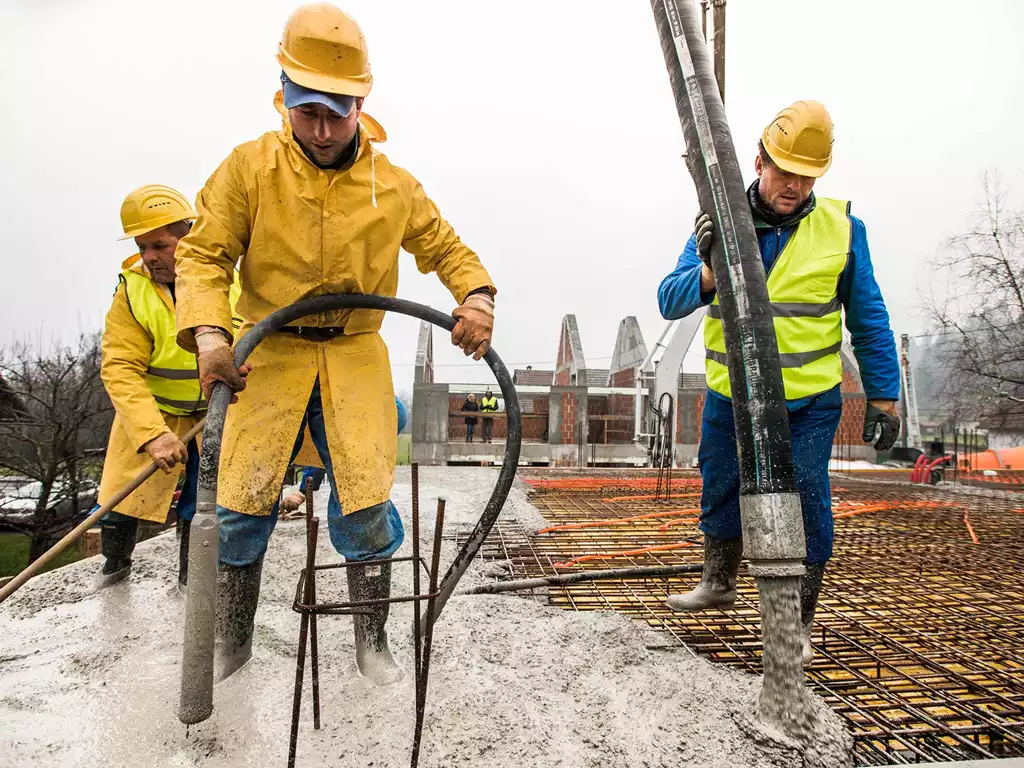E-STATE NIRMAN NIGAM WORKING IN HOTEL
aspects of hotels, including their history, types, roles in the hospitality industry, evolution, management, and impact on tourism and culture. Additionally, it will touch on modern trends
and challenges facing the hotel industry.
Introduction

Hotels have been an essential part of human civilization for centuries, providing travelers with a place to E-state Nirman Nigam http://estatenirmannigam.inrest and rejuvenate during their journeys. While the basic function of hotels has remained consistent—offering accommodation for a fee—the hotel industry has evolved significantly over time. Today, it encompasses a diverse range of establishments, from luxury resorts to budget inns, catering to a wide variety of preferences and budgets. E-state Nirman Nigam http://estatenirmannigam.in
History of Hotels
The concept of offering lodging to travelers is as old as human civilization. Ancient cultures, such as the Romans, Persians, and Chinese, built inns and guesthouses along major travel routes. These early establishments provided shelter and food for weary travelers and their animals. During the Middle Ages, monasteries and abbeys often offered hospitality to pilgrims, setting the stage for modern hospitality.E-state Nirman Nigam http://estatenirmannigam.in
The birth of the modern hotel industry can be traced to the 18th century when European grand tours became popular among the elite. Hotels in major cities such as London and Paris catered to the needs of these travelers, offering luxury accommodations and amenities. The industrial revolution further accelerated the growth of the hotel industry as travel became more accessible to the masses.E-state Nirman Nigam http://estatenirmannigam.in
Types of Hotels
Hotels can be categorized into various types based on their purpose, target audience, and services offered.E-state Nirman Nigam http://estatenirmannigam.in Some of the most common types of hotels include:
Luxury Hotels: These high-end establishments offer premium amenities, exceptional service, and opulent accommodations. Luxury hotels often cater to affluent travelers looking for exclusivity and indulgence.
Boutique Hotels:E-state Nirman Nigam http://estatenirmannigam.in Boutique hotels are known for their unique and stylish design, often with a theme or concept. They offer personalized experiences and cater to guests seeking something different from the standard hotel chain experience.
Budget Hotels: These hotels focus on affordability and E-state Nirman Nigam http://estatenirmannigam.insimplicity, providing basic accommodations without unnecessary frills. They cater to budget-conscious travelers looking for a cost-effective stay.
Resorts: Resorts are destination hotels that offer a variety of recreational activities and amenities, such as golf courses, spas, and water sports. They are often located in scenic or vacation destinations.
Business Hotels: Business hotels are designed to cater to the needs of corporate travelers, offering amenities such as meeting rooms, conference facilities, andE-state Nirman Nigam http://estatenirmannigam.in high-speed internet access.

Extended Stay Hotels: These hotels offer longer-term accommodations with amenities such as kitchenettes and living spaces, catering to travelers who need a home-like environment for an extended period.
All-Inclusive Hotels: All-inclusive hotels provide guests with everything they need for a complete vacation experience, including meals, drinks, and entertainment, all included inE-state Nirman Nigam http://estatenirmannigam.in the room rate.
The Role of Hotels in the Hospitality Industry

Hotels play a vital role in the hospitality industry by providing essential services to travelers and tourists. Their importance extends beyond just offering accommodations:E-state Nirman Nigam http://estatenirmannigam.in
Economic Impact: Hotels contribute significantly to local and national economies through job creation, tax revenue, and support for other industries such as agriculture and transportation.
Tourism Promotion: Hotels often collaborate with local attractions, tour operators, and cultural institutions to promote tourism in their regions.E-state Nirman Nigam http://estatenirmannigam.in
Cultural Exchange: Hotels serve as hubs for cultural exchange, bringing people from different backgrounds together and facilitating interactions between locals and tourists.
Innovation and Trends: The hotel industry constantly evolves to meet the changing needs of travelers. This leads to innovation in areas such as sustainability, technology, and guest experiences.

Evolution of Hotels
The hotel industry has undergone significant changes over the years, adapting to new technologies, changing traveler preferences, and economic challenges. Some key milestonesE-state Nirman Nigam http://estatenirmannigam.in in the evolution of hotels include:
Technological Advancements: The adoption of new technologies has transformed the hotel experience. From online booking platforms to digital check-in, hotels have leveraged technology to enhance guest convenience and streamline operations.
Sustainability: Environmental consciousness has become a priority for many hotels. Eco-friendly practices such as energy-efficient lighting, water-saving fixtures, and recycling programs E-state Nirman Nigam http://estatenirmannigam.inare increasingly common.
Customization: Hotels now focus on offering personalized experiences for guests. This includes tailored amenities, custom room setups, and unique services that cater to individual preferences.
Health and Safety Measures: The COVID-19 pandemic has led to heightened health and safety measures in hotels. Enhanced cleaning protocols, social distancing practices, and contactless services have become standard in the industry.
Workcations and Remote Work: The rise of remote work E-state Nirman Nigam http://estatenirmannigam.inhas given birth to the concept of “workcations,” where people combine work and leisure travel. Hotels have responded by offering coworking spaces and amenities suited to remote workers.

Hotel Management and Operations
Effective hotel management is crucial for delivering a positive guest experience and ensuring the profitability of the establishment. Key aspects of hotel E-state Nirman Nigam http://estatenirmannigam.inmanagement and operations include:
Guest Services: Providing excellent guest service is paramount in the hotel industry. From check-in to check-out, staff must be attentive, friendly, and efficient.

Revenue Management: Hotels use dynamic pricing strategies to optimize room rates based on demand and market conditions. Revenue management aims to maximize occupancy and profitability.
Housekeeping and Maintenance: Maintaining clean aE-state Nirman Nigam http://estatenirmannigam.innd well-kept facilities is essential for guest satisfaction. Housekeeping and maintenance teams work diligently to ensure rooms and common areas meet high standards.
Food and Beverage Services: Many hotels offer on-site dining options, including restaurants, bars, and room service. These services contribute to the overall guest experience and provide additional revenue streams.
Marketing and Promotion: Hotels use various marketing strategies to attract guests, such as digital advertising, social media campaigns, and loyalty programs.E-state Nirman Nigam http://estatenirmannigam.in

Compliance and Safety: Hotels must adhere to local regulations and safety standards, including fire safety, health codes, and accessibility requirements.
Impact of Hotels on Tourism and Culture
Hotels play a central roleE-state Nirman Nigam http://estatenirmannigam.in in shaping the tourism experience and influencing cultural exchange:
Supporting Local Economies: Hotels create jobs and stimulate economic activity by supporting local businesses such as restaurants, shops, and attractions.
Cultural Experiences: Hotels oftenE-state Nirman Nigam http://estatenirmannigam.in showcase local culture through design, cuisine, and activities. This helps preserve traditions and promote cultural awareness among guests.

Social Responsibility: Many hotels engage in corporate social responsibility initiatives, such as supporting local communities, promoting sustainability, and giving back to charity.
Modern Trends in the Hotel Industry
The hotel industry is continually evolving to meet the changing needs of travelers. Some current trends include:
Sustainability and Eco-Friendly Practices: Hotels are increasingly adopting sustainable practices, such as reducing plastic waste, conserving energy and water, and sourcing locally produced goods.
Smart Technology: The integration of smart technology, such as IoT (Internet of Things) devices, allows guests to control room settings and access services conveniently.

Health and Wellness: Hotels are incorporating wellness amenities, such as fitness centers, yoga studios, and spa services, to cater to health-conscious travelers.
Contactless Services: The demand for contactless services has grown in the wake of the COVID-19 pandemic. Hotels are implementing digital check-in, mobile keys, and contactless payment options.
Local Experiences: Travelers increasingly seek authentic local experiences. Hotels are responding by offering excursions, tours, and partnerships with local artisans and businesses.
Challenges Facing the Hotel Industry

Despite its growth and evolutionE-state Nirman Nigam http://estatenirmannigam.in, the hotel industry faces several challenges:
Economic Volatility: Economic downturns can lead to reduced travel demand, affecting hotel occupancy rates and revenue.
Competition from Alternative Accommodations: The rise of home-sharing platforms like Airbnb presents competition for traditional hotels.
Labor Shortages: Staffing challenges, particularly in housekeeping and hospitality roles, can impact service quality.
Cybersecurity: Protecting guest data and maintaining cybersecurity is a growing concern in an increasingly digital world.E-state Nirman Nigam http://estatenirmannigam.in
Regulatory Compliance: Hotels must navigate a complex regulatory landscape, including health and safety regulations, labor laws, and zoning restrictions.

Conclusion
HotelsE-state Nirman Nigam http://estatenirmannigam.in have played a central role in the development of human civilization, providing travelers with safe and comfortable lodging during their journeys. Today, the hotel industry continues to evolve, adapting to new trends, technologies, and challenges. As the world changes, so too will the hotel industry, embracing innovation and sustainability to meet the needs of modern travelers while remaining a cornerstone of the hospitality and tourismE-state Nirman Nigam http://estatenirmannigam.in



